Happy 25th Birthday, Debian Linux!

Debian is one of the most important open source projects ever. The Debian Linux operating system is extremely popular in its own right, but also, it is used as the base for countless other distributions. Ubuntu, for instance -- one of the most-used distros -- is Debian-based. Even Linux Mint, which is based on Ubuntu, also has a Debian edition. Not to mention, Raspbian -- the official Raspberry Pi OS -- which is based on Debian too.
Today, Debian is celebrating a very important milestone -- a 25th birthday! Yes, it is seriously that old -- its development was announced on August 16, 1993. Hell, many of its current users weren't even born then!
Linux Mint Debian Edition (LMDE) 3 'Cindy' BETA available for download
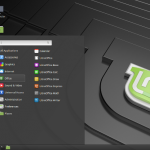
Back in June, we reported that Linux Mint Debian Edition 3 BETA would be released in July. Well, LMDE 3 did make the deadline, albeit barely. Yes, today, on the final day of the month, the BETA version of the rolling release operating system becomes available.
Unlike the traditional Linux Mint operating system which is based on Ubuntu, LMDE is based on Debian. To be more precise, LMDE 3 BETA is based on Debian Stretch. While this Debian version of Mint is perfectly usable as a daily driver, its real focus is as a contingency plan in case development of Ubuntu ever ceases in the future.
Debian 'Stretch' 9.5 Linux distribution available for download

Debian 9 "Stretch" was released over a year ago -- time really flies! Since then, the wildly popular Linux distribution has been downloaded by countless users.
Today, the 5th "point" release becomes available. In other words, Debian Linux "Stetch" has reached an important milestone -- version 9.5 stable. The operating system is always improving with security updates and bug fixes, and 9.5 is no exception here. In fact, it includes a patch for Spectre V2. Also of significance, the Debian Installer has been given an update.
Debian-based Raspbian Linux distribution for Raspberry Pi gets major update
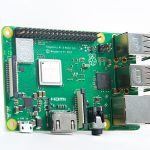
Computer hardware is useless without software. As cool as the diminutive Raspberry Pi computers are, for instance, they are just paperweights until you install an operating system. The little computers can run many OSes -- including an IoT variant of Windows 10 -- but really, Linux makes it shine.
One of the most popular Linux-based operating systems for Raspberry Pi is the Debian-based Raspbian. This is the "official" distribution for the Pi hardware, and today, it gets a major update. The Chromium web browser gets bumped up to version 65, while a new and faster PDF viewer, called qpdfView, replaces Xpdf. More importantly, the operating system gets two big additions -- a new setup wizard and recommended software program.
Linux Mint Debian Edition (LMDE) 3 'Cindy' Beta coming next month

Linux Mint is an Ubuntu-based desktop Linux distribution, right? Yes and no. While the "normal" version of the operating system is, in fact, based on Canonical's distro, there is yet another version. Called Linux Mint Debian Edition, or LMDE, it is based on Debian -- as the name implies.
Today, we learn some interesting news. The Beta of the next version of the operating system, LMDE 3 -- code-named "Cindy" -- should be released next month, in July.
Debian-based deepin Linux 15.6 now available

deepin Linux is controversial because its developers are in China. You see, some people are suspicious of a Linux distribution that comes from that country. If you feel that way, that's your business. But you know what? I am personally sick and tired of such xenophobia these days. Let's not forget, many goods come from China -- including personal computers and associated components. Not to mention, the OS is largely open source.
Controversy aside, deepin is a great operating system for both Linux beginners and experts alike. Not only is it stable thanks to its Debian base, but it has a very polished and focused user experience. Today, version 15.6 becomes available, and it is loaded with improvements.
Netrunner 18.03 'Idolon' Debian-based Linux distribution available for download

As Windows 10 continues its trend of being a bloated and confusing mess (tighten it up, Microsoft!), Linux-based operating systems continue to be an excellent alternative. There are no shortage of great Linux distributions from which to choose either -- Ubuntu, Fedora, Mint -- you can’t go wrong.
For those converting from Windows, one great choice is Netrunner. This is a Debian-based operating system that leverages the KDE Plasma desktop environment. It is very reminiscent of the much-loved Windows 7. The OS comes pre-loaded with a lot of useful software, and Linux beginners will really benefit from that. Today, a new version of the distro becomes available for download -- Netrunner 18.03 Idolon.
As Debian comes to Windows 10, should we worry Microsoft will 'embrace, extend, and extinguish' Linux?

Personally, I am not a fan of running Linux distributions on Windows 10 -- WSL, virtual machine, or otherwise. While I appreciate Microsoft's focus on Linux lately, I am of the opinion that if you want to run an operating system based on that open source kernel, then you should just do so natively -- not on top of Windows. While there is no proof that anything nefarious is afoot, it does feel like maybe the Windows-maker is hijacking the Linux movement a bit by serving distros in its store. I pray there is no "embrace, extend, and extinguish" shenanigans going on.
Just yesterday, we reported that Kali Linux was in the Microsoft Store for Windows 10. That was big news, but it was not particularly significant in the grand scheme, as Kali is not very well known. Today, there is some undeniably huge news -- Debian is joining SUSE, Ubuntu, and Kali in the Microsoft Store. Should the Linux community be worried?
Debian 9.2 'Stretch' Linux-based operating system is here -- download the distro now

Debian is one of the most important Linux-based operating systems. It is a great distribution in its own right, but it is also the foundation of many other distros. For instance, Ubuntu is largely based on Debian, and then many operating systems are based on Ubuntu. If you were to look at a Linux "family tree," many roads would lead back to the wonderful Debian.
The most recent version of Debian is 9.x, code-named "Stretch". The second point release for the operating system, version 9.2, is now available. There are many bug fixes -- plus significant security patches -- so despite being a point release, it is still very important.
Microsoft releases refreshed preview of 'Skype for Linux' for Ubuntu, Debian, Fedora, and more
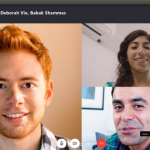
Skype is an important communication service thanks to its cross-compatibility. There are clients for Mac, Windows, Android, iOS, and even desktop Linux. It may not offer the best user experience, but it is passable, making it a solid choice for those that need to keep in touch across long distances.
Today, Microsoft releases a refreshed preview of Skype for Linux. There are both DEB and RPM packages available, making it easy to install on, say, Ubuntu, Debian, or Fedora. In fact, I successfully installed it on Pop!_OS earlier today. Believe it or not, the new interface is quite nice, making it something I could possibly enjoy using on my Linux machine.
deepin 15.4.1 Debian-based Linux distribution now available for download
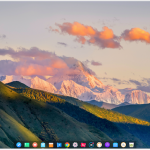
So many Linux distributions, so little time! Today, yet another operating system based on the kernel gets a new version. This particular distro, called "deepin" is a bit controversial, as it comes from China -- a country not known for human rights or user privacy. Since the OS is largely open source, I am not really worried, but I can respect people that are wary of spying, however.
This new version of deepin is 15.4.1. I know what you are thinking -- this is just a point release, is it really interesting? Actually, yes! There are quite a lot of new features and fixes, making this essential for existing users of the operating system. Those looking to try it for the first time -- maybe because they are dissatisfied with Windows 10 -- are in for a treat, as it has quite the unique and elegant user interface, delivering a very positive experience. Since it is based on the great Debian, you know that it will be rock solid.
SparkyLinux 5.0 'Nibiru' Debian-based rolling release open source distro is here
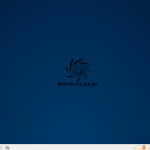
There are a lot of Linux-based operating systems in the wild, and I suggest trying as many as you can. Think of it like fruit -- apples are great, but you shouldn't stop after just tasting it. The world is full of different choices, such as mangoes, bananas, and oranges. The more you try, the more your knowledge expands. The same can be said of Linux -- even if you really like, say, Ubuntu, you should also test Fedora, Mageia, and more. Expand your mind!
Today, yet another distro hits a major milestone; SparkyLinux achieves version 5.0. Called "Nibiru," it is a rolling release operating system that is based on the popular Debian (using modern testing repos). It aims to be lightweight, with choices of three desktop environments that are easy on resources -- LXQt, MATE, and Xfce. In other words, Sparky can breathe new life into aging computers. If you have meager hardware, you should definitely give it a look.
Debian 9 'Stretch' is finally here -- download the Linux-based operating system now

Debian is a very popular Linux-based operating system, but its development does not exactly move at a breakneck pace. In other words, it tends to focus on stability rather than bleeding edge. In fact, the development of Debian 9 "Stretch" has been going on for over two years!
Today, Debian 9 'Stretch' finally sees release. It is chock full of changes from the prior version. While GNOME 3.22 is the default desktop environment, you can opt for plenty of others, such as Xfce, KDE Plasma, and MATE. Users will appreciate LibreOffice 5.2, which is included. Also of significance, MariaDB replaces MySQL.
Tails 3.0 is here -- download the Debian-based Linux distro and take back your privacy

If you are reading this, your privacy is under attack. Don't think hackers or government agencies have any reason to spy on you? Think again. Information is power, and collected data is very valuable. Only a sucker would argue that it doesn't matter because they have nothing to hide. Your liberties can be eroded when you don't join the battle for the overall greater good. In other words, it is important to fight for your rights before it is too late.
One way to fight for your privacy is to hide your internet activity from prying eyes. A great option for this -- especially in countries where exercising free speech can get you jailed or killed -- is Tails. This is a privacy-focused Linux-based operating system that is designed to run as a live environment -- preferably from an optical disk to best hide tracks. It was made famous by freedom-fighter Edward Snowden. You may not want to use the OS all the time, but it is a great tool for when you absolutely need privacy. Today, the Tails Linux distro reaches a significant milestone -- version 3.0 is stable. You can download the ISO immediately.
Devuan Jessie is here -- download the systemd-shunning Debian-forked Linux distro now

One of the coolest things about open source software is the ability to fork it. What is forking? Very simply put, it is taking code and altering it so it can be taken in a different direction. This is usually done when people are dissatisfied with the current path of a project. A good example of this is LibreOffice, which is a fork of OpenOffice. As that example shows, sometimes the fork can become better and more popular than the original.
Systemd is a very polarizing topic in the Linux community, so it should come as no surprise that it would lead to a fork. You see, some Debian users disliked systemd so much that they decided to create a version of the OS without it. Devuan is that operating system, and today, the fork finally sees stable release.
Recent Headlines
Most Commented Stories
© 1998-2024 BetaNews, Inc. All Rights Reserved. Privacy Policy - Cookie Policy.